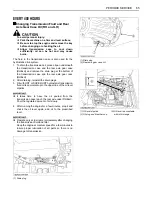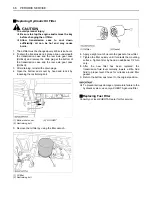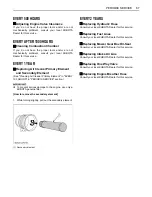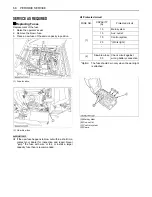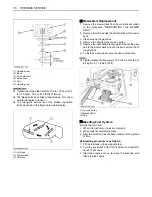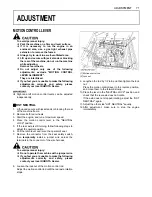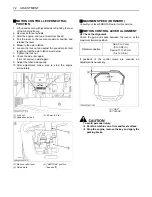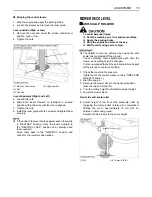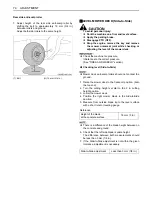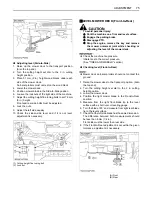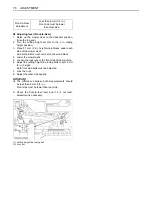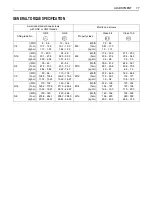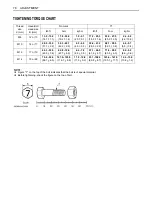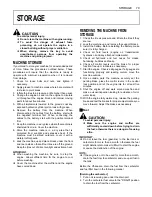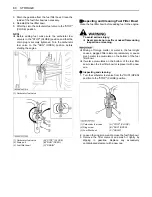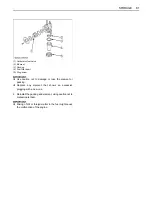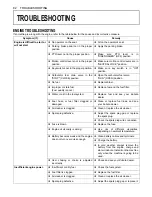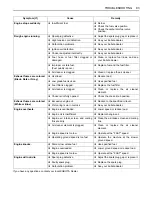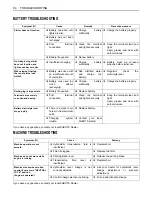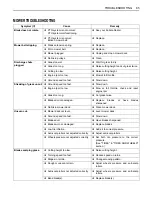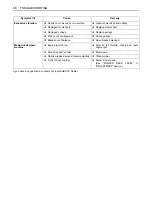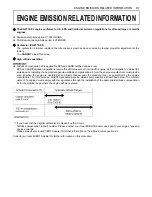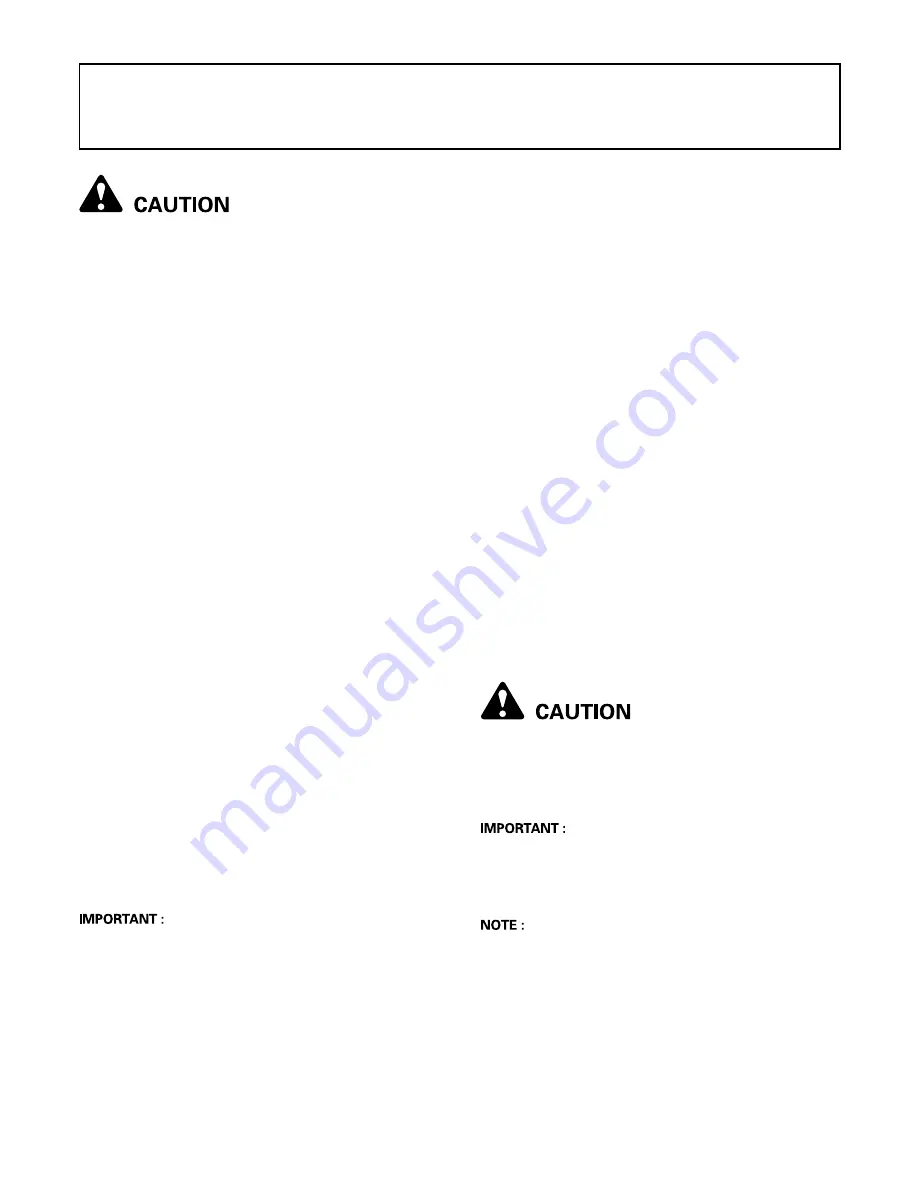
79
STORAGE
STORAGE
To avoid personal injury:
A
Do not clean the machine with engine running.
A
To avoid the danger of exhaust fume
poisoning, do not operate the engine in a
closed building without proper ventilation.
A
When storing, remove the key to avoid
unauthorized persons from operating the
machine and getting injured.
MACHINE STORAGE
If you intend to store your machine for an extended period
of time, follow the procedures outlined below. These
procedures will insure that the machine is ready to
operate with minimum preparation when it is removed
from storage,
1. Check for loose bolts and nuts, and tighten if
necessary.
2. Apply grease to machine areas where bare metal will
rust also to pivot areas.
3. Inflate the tires to a pressure a little higher than usual.
4. Change the engine oil and run the engine to circulate
oil throughout the engine block and internal moving
parts for about five minutes.
5. With all implements lowered to the ground, coat any
exposed hydraulic cylinder piston rods with grease.
6. Remove the battery from the machine. When
disconnecting the cables from the battery, start with
the negative terminal first. When connecting the
cables to the battery, start with the positive terminal
first.
7. Keep the machine in a dry place where the machine is
sheltered from rain. Cover the machine.
8. Store the machine indoors in a dry area that is
protected from sunlight and excessive heat. If the
machine must be stored outdoors, cover it with a
waterproof tarpaulin.
9. Jack the machine up and place blocks under the front
and rear axles so that all four tires are off the ground.
Keep the tires out of direct sunlight and extreme heat.
A
When washing the machine, be sure to stop the
engine. Allow sufficient time for the engine to cool
before washing.
A
Cover the machine after the muffler and the engine
have cooled down.
REMOVING THE MACHINE FROM
STORAGE
1. Check the tire air pressure and inflate the tires if they
are low.
2. Jack the machine up and remove the support blocks.
3. Install the battery. Before installing the battery, make
sure it is fully charged.
4. Check all fluid levels (engine oil, transmission/
hydraulic oil and any attached implements).
5. Check all hydraulic and fuel hoses for cracks,
hardening, bubbles and leaks.
6. Check all control levers and the brake for proper
function free up or lubricate as necessary.
7. Start the engine. Observe all gauges. If all gauges are
functioning properly and reading normal, move the
machine outside.
8. Once outside, park the machine securely set the
parking brake, place the control levers in the neutral
lock position and let the engine idle for at least five
minutes.
9. Shut the engine off and walk around machine and
make a visual inspection looking for evidence of oil or
water leaks.
10. With the engine fully warmed up, release the parking
brake and test the brakes for proper adjustment as you
move forward. Adjust the brakes as necessary.
B
Fuel
To avoid personal injury:
A
Make sure the engine and muffler are
sufficiently cooled down before trying to drain
the fuel; otherwise there is a danger of causing
a fire.
A
Do not leave the fuel (gasoline) in the fuel tank or
carburetor for more than a month; otherwise the fuel
might deteriorate to make it difficult to start the engine
or cause the malfunction of the engine.
A
If the engine is not to be used for more than a month,
drain the fuel from the carburetor and use up all fuel in
the tank.
Before the off-season, drain the fuel from the carburetor
and fuel filter bowl in the following manner.
[Draining the carburetor]
1. Put an oil receiving pan under the drain port.
2. Turn the carburetor fuel valve to the "DRAIN" position
to drain the fuel from the carburetor.
Summary of Contents for ZG327A-AU
Page 13: ...SAFE OPERATION 6 7 DANGER WARNING AND CAUTION LABELS ...
Page 14: ...7 SAFE OPERATION ...
Page 15: ...SAFE OPERATION 8 ...
Page 17: ......
Page 52: ...35 MAINTENANCE PERIODIC SERVICE CHART LABEL 1 Part No K3287 6552 ENGLISH ...

